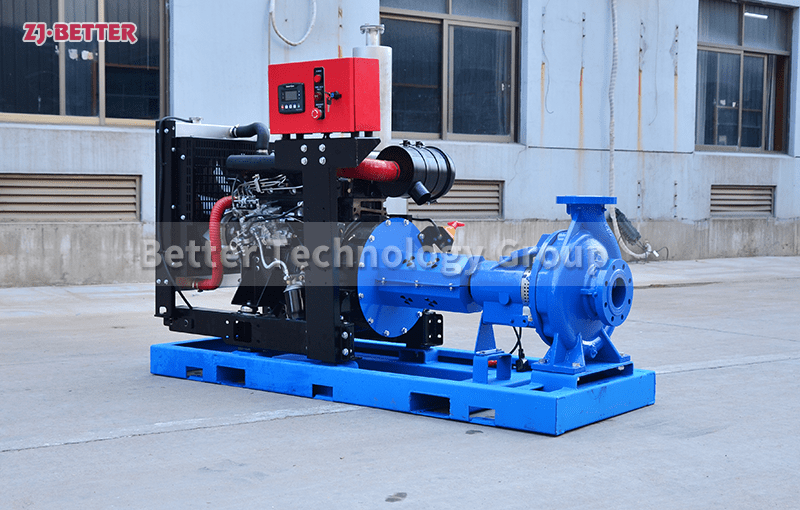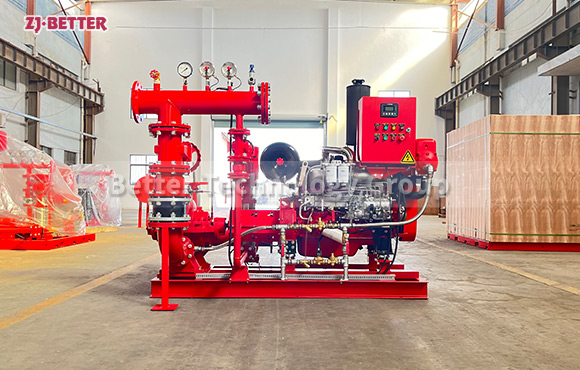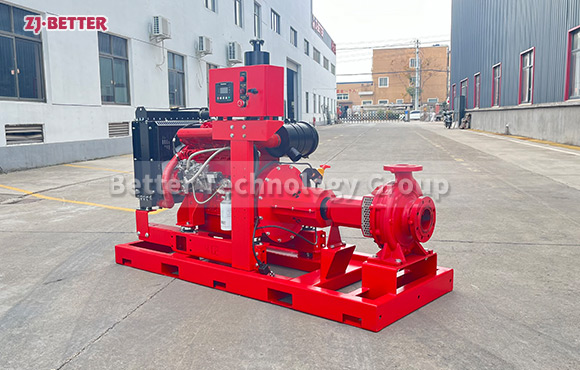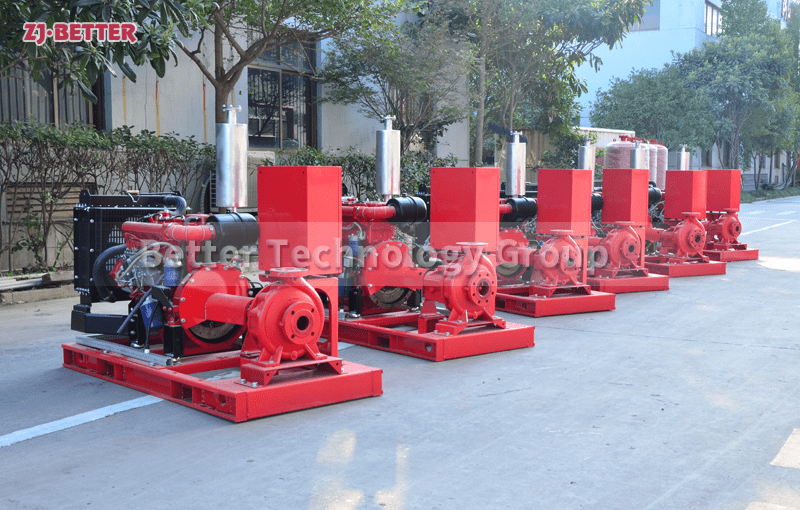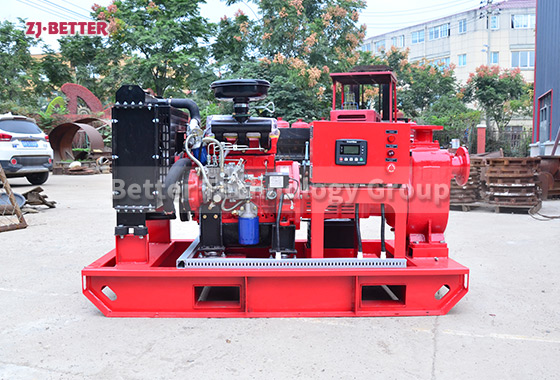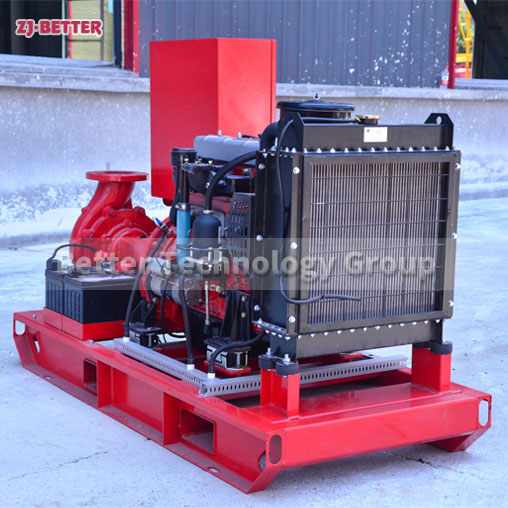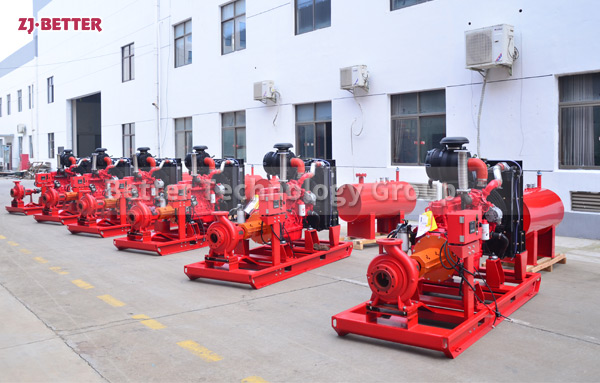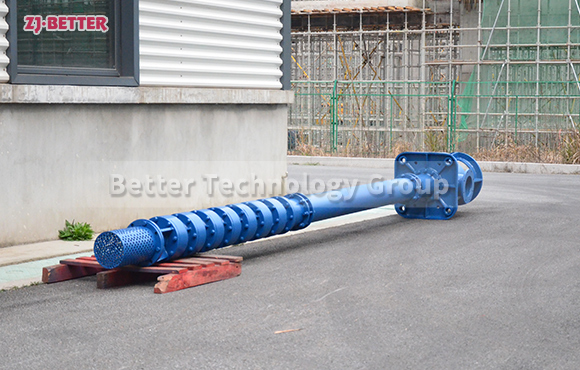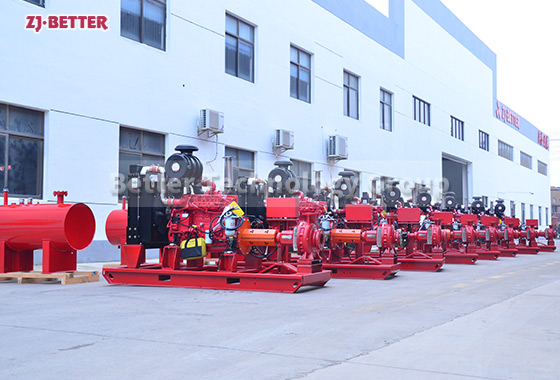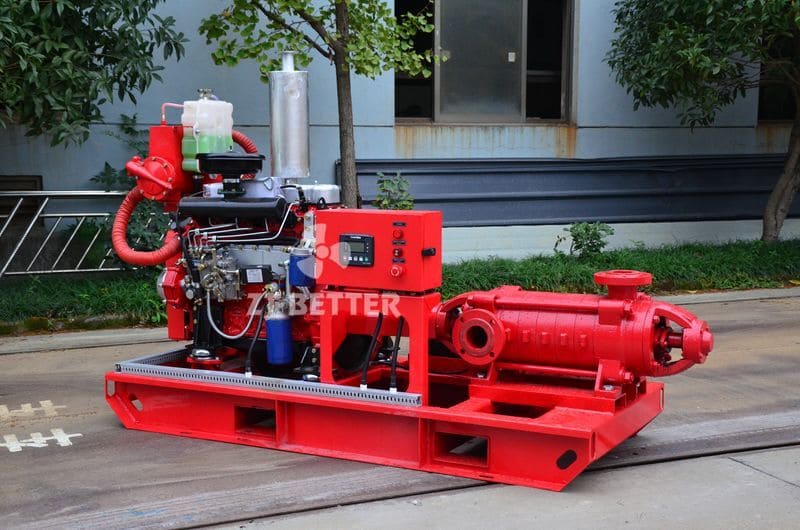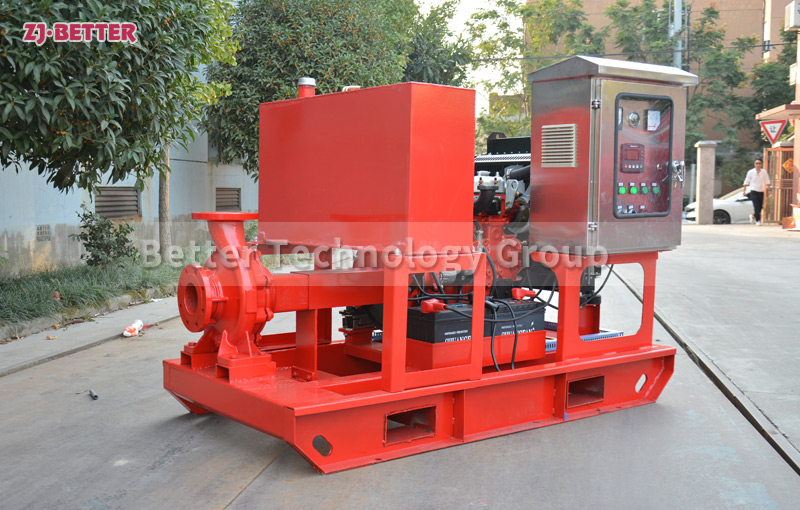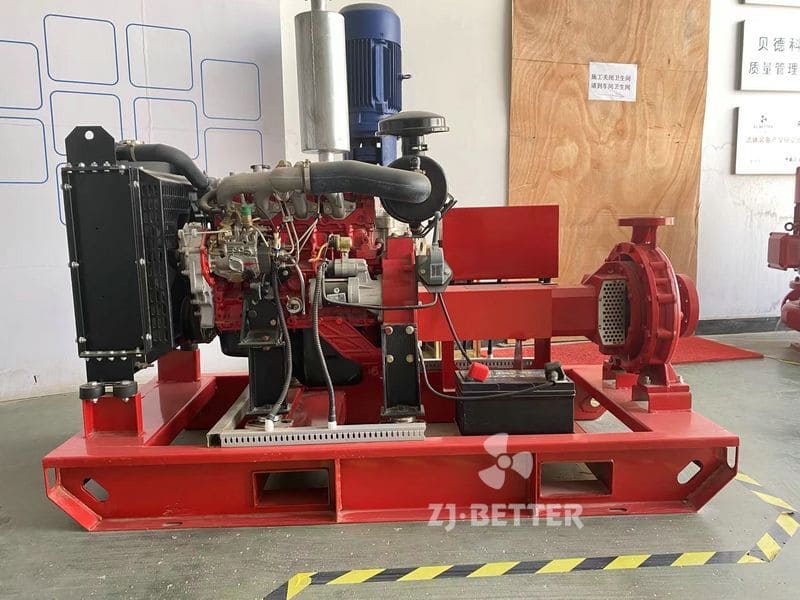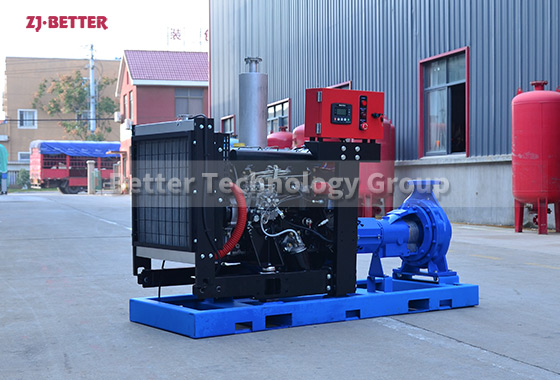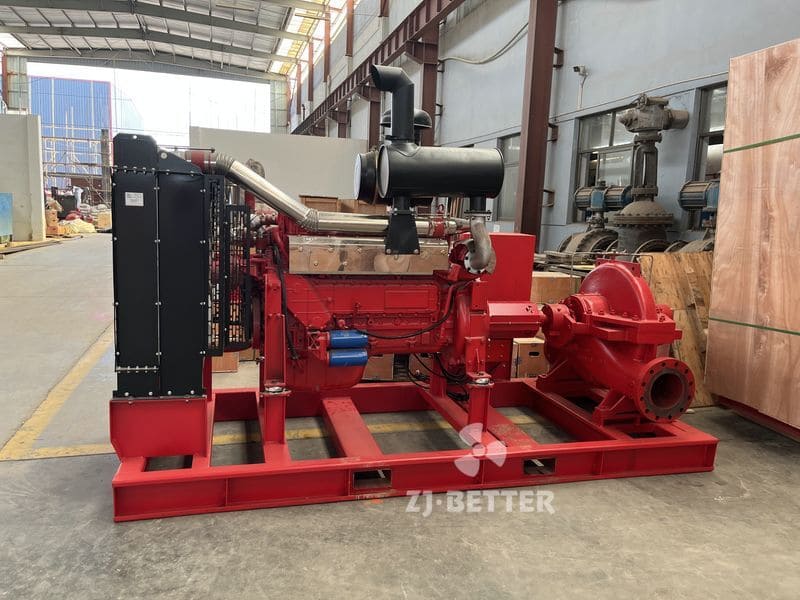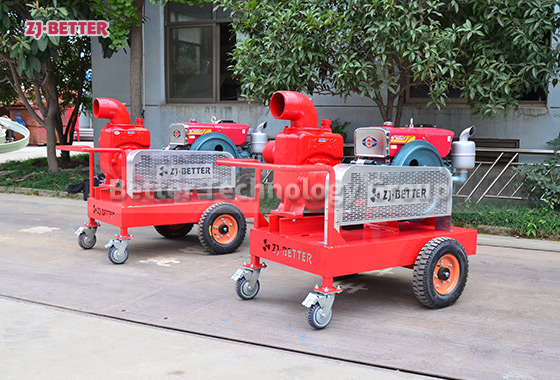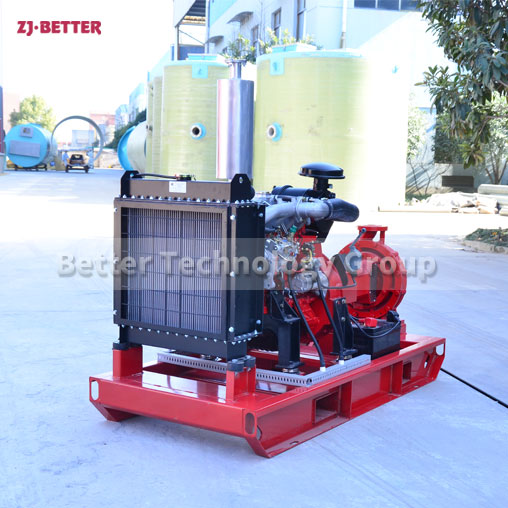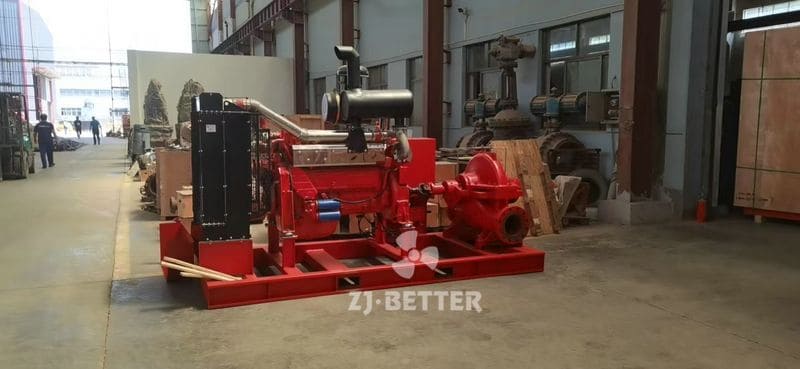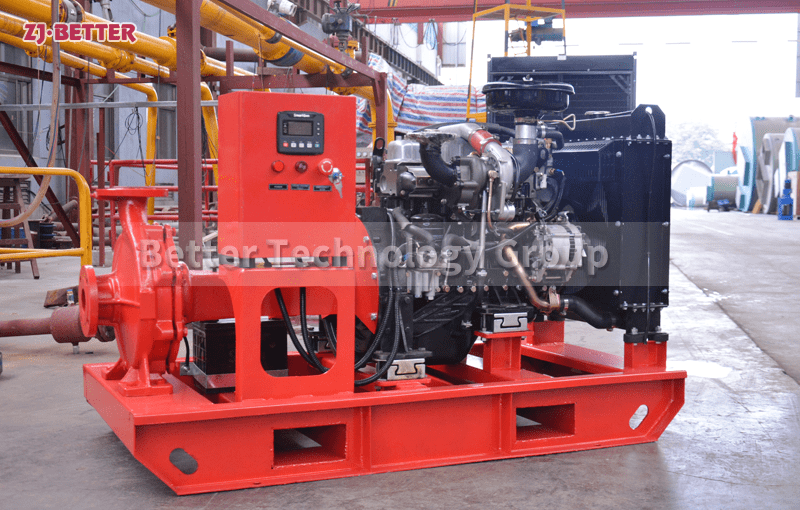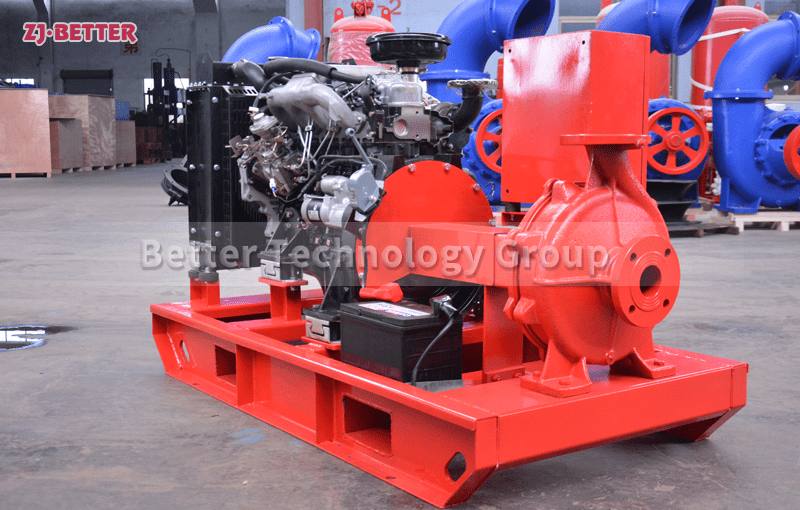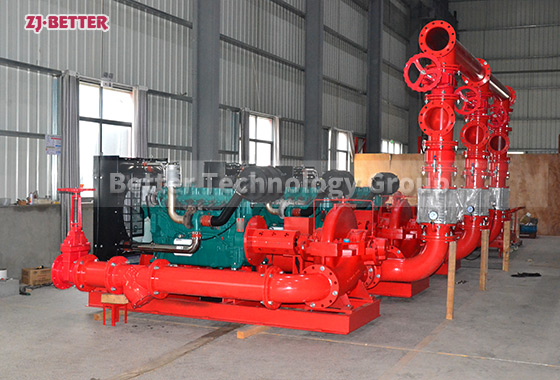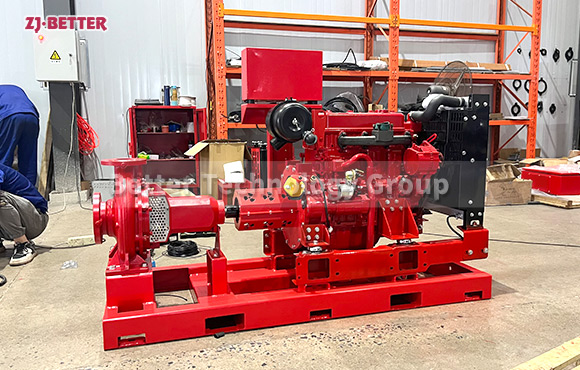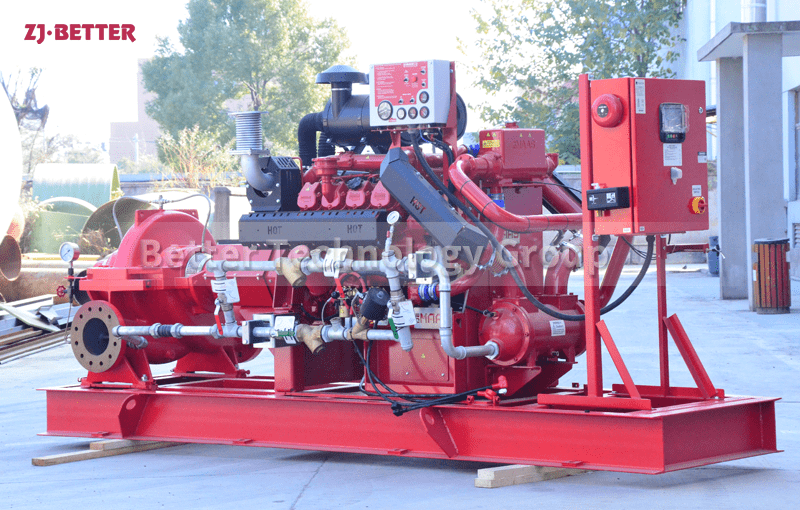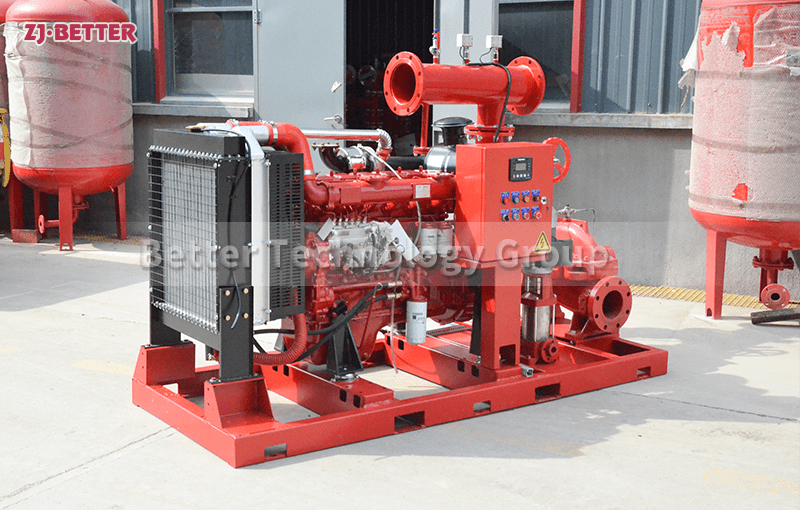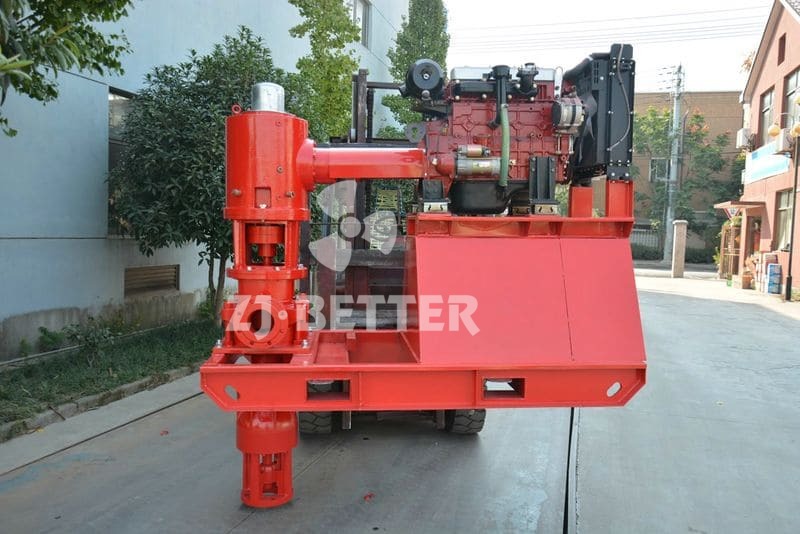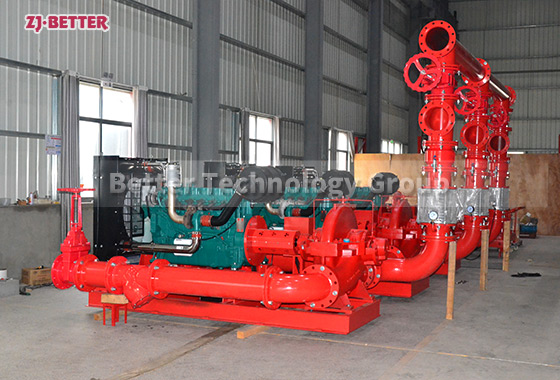The role of diesel engine fire pump group
Fixed fire water supply equipment can use fire pumps driven by electric motors, or fire pumps driven by diesel engines. The international standard name of diesel engine fire pump set is “engineering diesel engine fire pump set”. It uses diesel engine as power to drive fire water pump, and outputs pressurized water or air foam mixture for fire extinguishing work.
When dual power supplies are required or in order to further improve reliability, fire water supply equipment often adopts fire pumps driven by diesel engines. After the various components of the diesel engine fire pump set have passed the strict certification test, their reliability is much higher than that of the electric motor fire pump set.
Diesel engine fire pump control mode
1. Automatic start:
According to the fire alarm signal or the failure of the electric fire pump to start or the low pressure signal of the fire water pipe network, the diesel engine water pump starts automatically, and after the automatic start, manual operation is required to stop it. The automatic starting mode of the diesel engine fire pump adopts at least one of the two ways of electric starting, hydraulic starting and compressed air starting.
2. Manual start:
When the automatic control function of the diesel engine fire pump group fails, it can be manually operated to start the diesel engine fire pump to work normally. It includes the control cabinet of the diesel engine fire pump group, the instrument box of the diesel engine and the manual start on the diesel engine.

